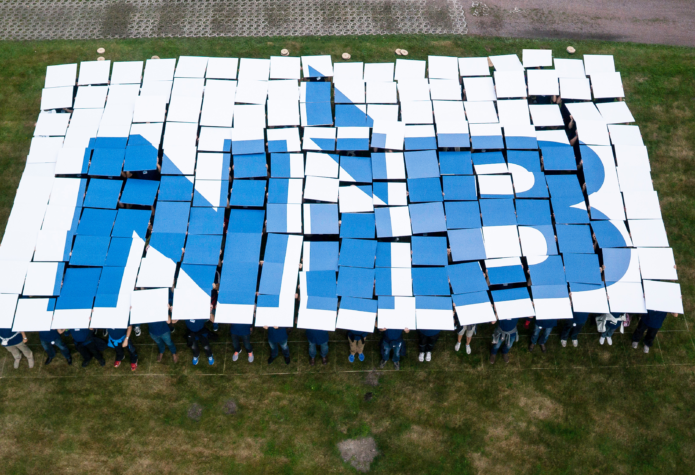NIB marks 45 years of operations

On 1 June 2021, the Nordic Investment Bank (NIB) celebrates its 45th anniversary. Since the Bank started operations in 1976, NIB has invested more than the equivalent of EUR 63 billion in over 2,200 projects.
At the outset, the Nordic countries established NIB to overcome investment barriers, promote economic growth and cooperation in major investment projects. Today, NIB’s mission is to finance projects that improve the productivity and benefit the environment of the Nordic and Baltic countries, as well as in selected non-member countries. In between, several milestones have passed by in the rear-view mirror.
NIB President and CEO André Küüsvek says NIB’s dual environmental and productivity mandate, combined with sound banking principles, has served the Bank well over the years and should also guide its future.
Milestones
In 1982, NIB is awarded the top credit rating, AAA/Aaa for its bonds. The Bank has continuously maintained this credit rating since then.
In 1983, NIB agreed on its first project investment loan outside the membership area.
In 1994, NIB started to participate in the Baltic Investment Programme, set up by the Nordic countries with the aim of helping to build up the private sector in the Baltic countries.
In 1996, the Nordic prime ministers decided to establish a special environmental loan facility to finance environmental investments in the region neighbouring the Nordic countries.
In 2005, the three Baltic countries joined NIB on equal footing with the original members. To date, the Bank’s total investment in the Baltics stand at EUR 4.1 billion (Estonia EUR 1.5 billion, Latvia EUR 1.2 billion and Lithuania EUR 1.4 billion) through more than 150 projects.
In 2006, NIB renewed its strategy to focus on sustainable growth, strengthening the competitiveness of the economies and financing environmental projects.
In 2011, NIB issued its first green bond under its new Environmental Bond framework.
Last year, NIB updated its Statutes to strengthen the Bank’s operations and ensure continued adherence to sound banking principles. At the end of March 2021, NIB’s total outstanding lending amounted to EUR 22.19 billion.
Looking ahead
“NIB has long been a pioneer in promoting green and efficient investment, and we need to continue this decisive work,” says Mr Küüsvek.
Today, we see that life on earth is threatened by climate change and loss of biodiversity. This poses massive risks to our environment, the economy and society. To ensure that future generations can survive, we have to transform our ways of living, consuming, and producing.
For NIB, this means contributing sustainable financing to the green transition, energy-efficient green buildings, clean transportation, renewable energy production, productivity improvements, pollution prevention, and protecting marine environments.
“We should also realise that the economic impact of Covid-19 has been softened by the unprecedented amount monetary and fiscal stimulus, with the results of increasing global debt burden. In some ways this and coming years may be even more challenging than 2020, as countries and enterprises differ in terms of how they are impacted, but also how they have responded to the crisis,” says Mr Küüsvek.
“The true effect of the virus is yet to be seen once the patient is released from hospital.”